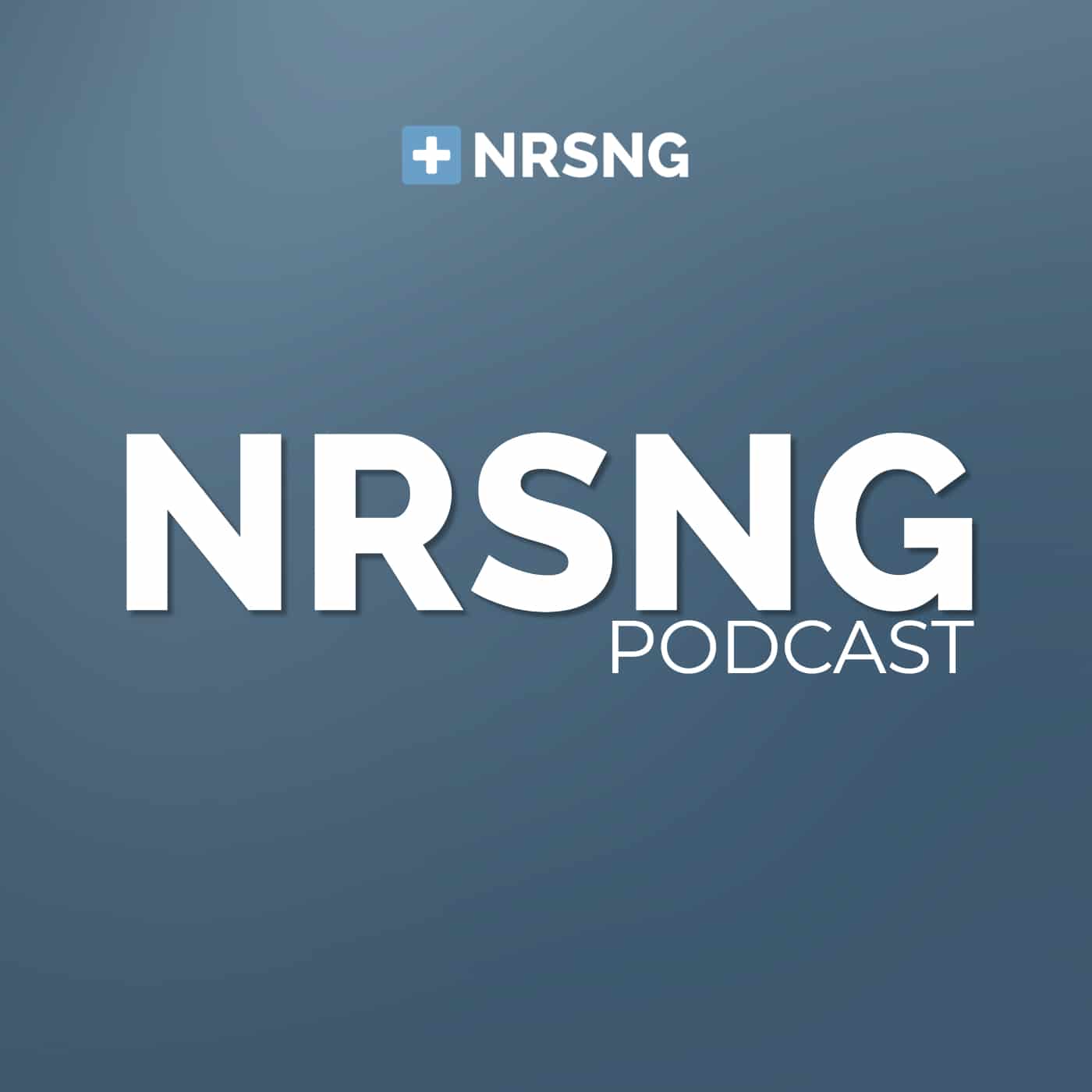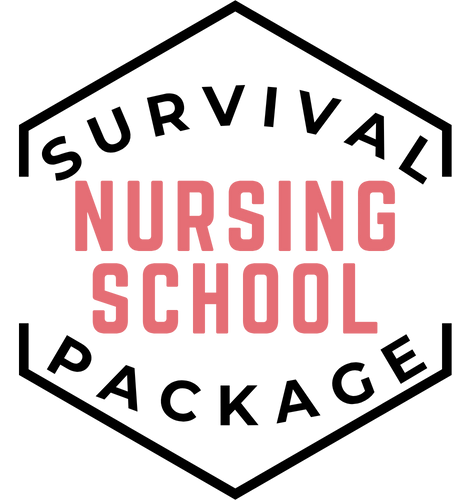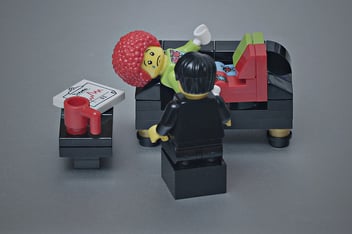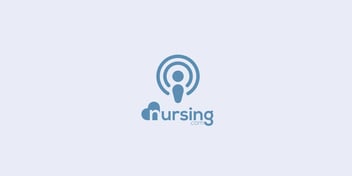NURSING.com Academy FAQs | NURSING.com

Speaker 1: Welcome to the NRSNG podcast. Providing those who care for the world with the tools and confidence they need. Here’s your host, Jon Haws.
Jon Haws: What’s up, guys? Welcome to the NRSNG podcast. I’m Jon Haws, RN.
Nichole Weaver: I’m Nichole Weaver, MSN, RN, CCRN.
Jon Haws: Today we wanted to address some of the questions we get a lot about the new NRNSG Academy, NRSNG Academy 2.0, whatever you want to call it. We were talking yesterday and when we were talking I turned to Nichole and I said, “You know, what people don’t realize is they’re sitting behind a Porsche with this new Academy.” This isn’t like a Toyota Corolla or something. They’re gonna get in there and they might not realize all the power they have available to them with this platform.
Nichole Weaver: Yeah, for sure. We’ve got so many different things available and they’re so easy to access. Right at your fingertips you’ve got everything that you need to know. All the resources we have on, for example, heart failure. We always talk about heart failure. You’ve got a video. You’ve got a video guide. You’ve got an outline, a transcript, you’ve got mnemonics, patho charts, cheat sheets, everything that you would need to figure out heart failure is right there for you in one place.
Jon Haws: It’s hard to talk about without showing you but if you go into a lesson all these resources are tied to it. The biggest benefit of this Academy is being able to create personalized study plans. We call them personalized because they are 100% catered to you. You tell the Academy what you want to learn and it delivers to you in a completely catered format on your dashboard what you need to do next. Super cool. One of the questions we get a lot is the Academy lifetime membership?
Nichole Weaver: Yep, so the Academy is a lifetime membership. You pay the full nine months of payments or with a one time payment is a lifetime membership. You can get this from day one in nursing school or even in your prerequisites and have it all the way through your NCLEX.
Jon Haws: Another question we get is can you preset the study plans to match your classes with set dates of when they’re due?
Nichole Weaver: Study plans are … you can set as many study plans or change your study plan as many times as you want with a date. We always recommend doing one week at a time, a couple days at a time, one test at a time. Pull that in, pull in the information that you need for that test, run through that and master all of that content, and then reset your study plan for whatever the next test is that you have. You can change it as many times as you want.
Jon Haws: The goal with that is staying focused.
Nichole Weaver: Yeah.
Jon Haws: One thing we always talk about in one of our previous podcasts, we talked about staying focused in your study and 2010 and all those types of things. This is to keep you 100% focused on what you really need to be learning. If you create all these different things about, well, I do want to learn a little bit about peds, but I really want to learn about heart failure, and I really want to learn this med. You’re gonna be jumping all over the place. This keeps you focused on what you need to know. Another question we get a lot is how many times can I take the SIMCLEX? You want to talk about what the SIMCLEX is and why it’s so cool and how many times can you take it?
Nichole Weaver: Yeah, so SIMCLEX is our NCLEX simulator. It even looks like the NCLEX. It’s very boring and ugly. When you go into SIMCLEX it will give you, just like the NCLEX, anywhere from 75 to 265 questions. It’s adaptive testing just like the NCLEX. It’ll give you results that you can kind of study what you did really well on, what you didn’t. That you can take as many times as you want to. We recommend everybody take it at least three times before they take their NCLEX.
Jon Haws: One thing we’ve added to NRSNG Academy, in the old version, was something called patho charts, trademarked.
Nichole Weaver: Yes.
Jon Haws: These patho charts are awesome. Talk about what they are, Nichole, and talk about how to use them. You created a lot of them.
Nichole Weaver: So patho charts are going to give you sometimes a picture of either a symptom or a part of the disease and then it’s gonna tell you the pathophysiology in basic terms, like really simple few sentences on the pathophysiology of that disease process. We’re gonna talk about assessment criteria, what are you gonna see? We’re gonna talk about maybe some diagnostic tests you might see, some nursing priorities for that patient, therapeutic management and the medications. On one sheet of paper, you’ve got the basic plan of attack therapeutically for this patient and what’s going on with them and you can quickly look, if somebody says tell me about chronic kidney failure, you can quickly pull up the chronic kidney disease patho chart and immediately understand not only what it is, what the patients’ are gonna look like, but what we’re gonna do for that patient.
Jon Haws: Talk about the colors with them.
Nichole Weaver: Yes, so we’ve color coded all of our resources. If you have let’s say a cardiac, patho chart’s gonna be red, the GI patho charts are green, the respiritories are blue, the neuros are this light purple color. Every resource that we’ve got is color coded. It also matches our scrub sheets. They’re also color coded so you know if you pull up an orange card or an orange cheat sheet it’s related to pharmacology. You kind of can quickly grab ’em, quickly find the right ones.
Jon Haws: The idea behind that, what we hear from nursing students and what we remember from our experiences, this massive amount of overwhelm. You sit down to study because you know you have to but you’re so exhausted that you don’t know even where to start. We want to get rid of all that overwhelm, all that stress, so that you’re just diving in and you’re going. One person has asked us, or not one person, a lot of people have mentioned to us that they use YouTube, they use Wikipedia, they use their book, they use all these different resources, the goal behind this is that you can stop using all of that.
Nichole Weaver: Yep.
Jon Haws: We still want you to subscribe to us on YouTube but you don’t even need to because it’s all right there. The Academy is the only resource you need. I would go as far to say that it is really the only resource you’re gonna need, other than your syllabus because you’re gonna plug all that in. Another tool that we’re launching with NRSNG Academy 2.0 is NRSNG Academy Go. Nichole, you want to talk about what that is, how it plays into the Academy, and how members can access it?
Nichole Weaver: Yes, so NRSNG Academy Go is our app for members of the Academy that gives you our entire resource library right on your phone. That includes care plans, cheat sheets, case studies, flash cards, images, mnemonics, patho charts, everything’s right at your fingertips. Remember I said somebody asks you about chronic kidney disease? You pull out your app, you go to patho charts, you scroll to chronic kidney disease, open it up and immediately you’ve got that patho chart right in front of you on your phone, ready to go, ready to learn. Again, you also have your images. You can run through an image database. You’ve got flash cards. Everything’s right on your phone on the NURSING.com Academy Go app for our NURSING.com Academy members.
Jon Haws: I think with that one of the big design overhauls we did was we made it all match the nomenclature or the wording that you’re familiar with in nursing school so you have a classroom, you have a testing center, and you have a library. It’s really easy to navigate. We’ve got all these search functions. We’ve got all these help features. When you get in there it’s gonna be hard to realize how exactly powerful and how much information we have there because it’s so well organized where you can just get in there and access everything.
With the NRSNG Academy Go, it’s really kind of a scaled down version of the library for those things that you need on the clinical floor, when you’re bored waiting in line, whatever. Another thing to point out is we do suggest that you study the full version. That you’re on the laptop, on the desktop as often as you can because that’s where you’re gonna get the more immersive experience and be able to really dive in. Some people ask what’s it gonna look like on my phone if I’m in the full version versus on the desktop.
Nichole Weaver: Yeah, so all the same functionality is there on the mobile website, but it’s not the same as being on a computer. On your computer you’re gonna have the video running at the top and while that video is running you can actually open up your cheat sheets, you can open up images and look at the images while the video is running and you’re listening to it. You can download the video guide to follow along with. You know how it is on your phone. If you click a link it takes you completely off of the page that you were on on to something else. You can’t have multiple tabs open. You can’t have the video running while you look at an image. We definitely recommend that you use it from your computer.
Jon Haws: Let’s talk about one question we get sometimes is that we discuss all of heart failure in 10 minutes.
Nichole Weaver: Mm-hmm (affirmative).
Jon Haws: Why do we do that?
Nichole Weaver: Nursing school likes to tell you that you have to know everything and we do not subscribe to that philosophy. The reality is what you need to know is the most important things. You need to know the basic pathophysiology of what’s going on, you need to know the priorities of nursing care and what to look for in your patient. We focus on that. We call it the core content mastery method. We want you to know the most important pieces that are gonna save a life, that are gonna help you recognize things, that are gonna help you prioritize your work for your patients.
We like to say nursing school likes to give you the buffet, we like to give you the filet mignon. There are some people that will feel like our stuff is not in depth enough, but the reality is you’ve got a textbook, you’ve got your nursing notes from school and those are super in depth. That’s where you’re gonna get the depth and the content overwhelm, we don’t want to do that. We want to give you the most important pieces.
Jon Haws: I think with that too, we call it the filet mignon or we call them linchpins. If we were to recreate a textbook that would be completely unusable to you. It would be more confusing. You’re coming with all that confusion, with all that knowledge, with all that information tried to jam in your head. We want to clarify it, give you what you need to know so that when you walk into a patient’s room, you can identify heart failure versus MI versus acute coronary syndrome. Say I know what’s gonna happen, I know what this looks like, I can identify the difference and I know how to take care of it.
Nichole Weaver: And anticipate what the doctors are gonna want to do.
Jon Haws: Yeah, and so I think there’s a lot of power in that. We intentionally don’t do that. It would actually be easier for us to give you everything because we would just put everything that’s out there. We spend much more time sitting down thinking about, how do we extract what you actually need to know?
Nichole Weaver: For sure. It’s something that surprisingly takes more time but the reality is that the people who are putting this content together for you are nurses. We are functioning, working nurses. If for example, we include a random obscure drug that I’ve never given in my nine years of nursing, the textbook’s gonna tell you about it. I’m not gonna tell you about it because it’s not something we do. We’re using our expertise and our experience to say, “This is the most important stuff for you to know.”
Trust our process on that end. Trust that what we’re giving you is the most important and then also, I’ll tell you a secret. The NCLEX actually functions the same way. Every three years they’ll adjust, they’ll look at new nurses, they’ll ask them what are the most important things you looked at? What are the most common things you saw in your first year as a nurse? Those are the things that are gonna be on your NCLEX. It’s not gonna be the random, obscure drug that your professor wants you to know.
Jon Haws: It’s just so impossible and unrealistic to think that you can learn … I had my Med Surg book in here from nursing school. It’s over 2,000 pages. You’re not gonna learn all that but with the Academy every lesson you go into you’re gonna remember the key points and you’re gonna be able to take care of a heart failure patient. There’s so much here guys. If you guys want to check out the Academy it’s over at nrsng.com/academy. There’s a lot of opportunity to ask questions there. It just shows you some screenshots of what it looks like inside and answers a lot of these questions of how it looks. We’re always here to answer your questions. We’re always here to help you. We want you to succeed. This is the best way we can think to help as many nursing students throughout the world as possible in the best way possible.
Nichole Weaver: For sure.
Jon Haws: Those are the two things we had to answer is how do we reach as many as we can and how do we improve their experience in nursing and nursing education? This is the solution for that.
Nichole Weaver: For sure.
Jon Haws: Yeah, so with that guys, go out and be your best selves today. As always, happy nursing.
Nichole Weaver: Happy nursing.


.png?width=50&height=50&name=stencil.amz%20(3).png)





